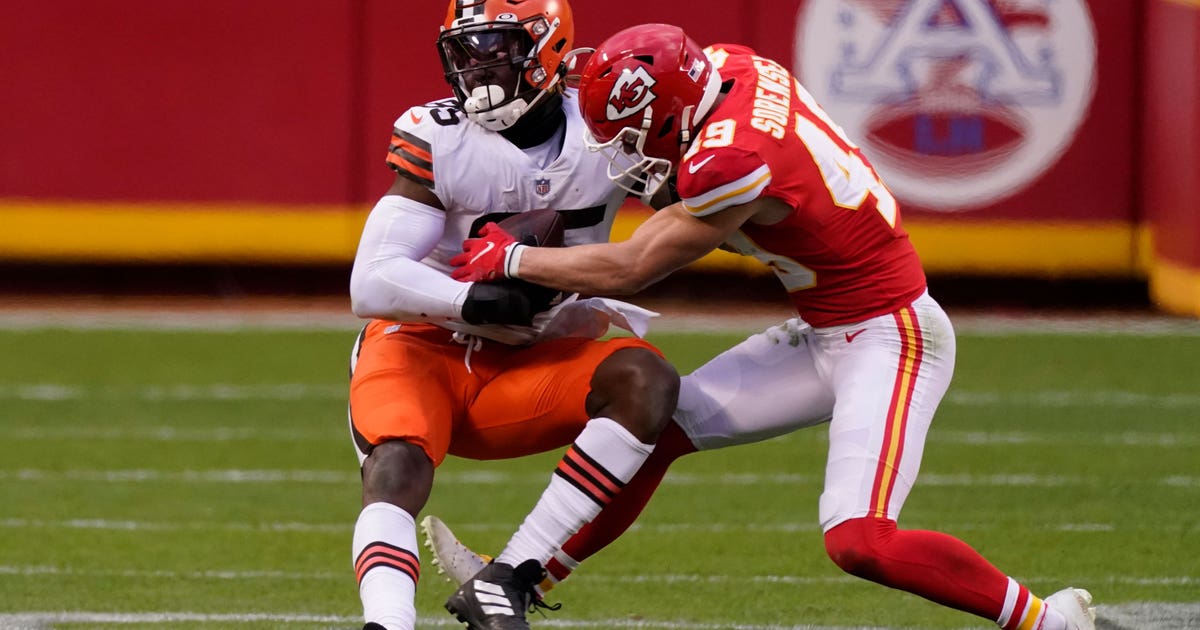Chiefs’, Bucs’ physical secondary play could test Super Bowl officials


The Kansas City Chiefs and Tampa Bay Buccaneers got to the Super Bowl using a similar strategy in the secondary.
Their defensive backs played press coverage and got physical with receivers, trying to disrupt routes and timing in hopes of slowing down the opposing passing game.
“There’s a couple of ways you can play football,” Bucs cornerbacks coach Kevin Ross said. “You can play football, lay back and let the receivers go where they want to go. Or you can put your hands on them and try to take the timing off of some routes. We choose to do the latter for the most part and go from there.”
The Chiefs like to do the same. Whether either team will be able to do that Sunday will depend in large part on how closely the officials call the game in the secondary.
Both teams have gotten away with some physical play in the secondary so far in the playoffs. The Bucs were penalized for defensive holding three times and pass interference once in three games, while the Chiefs were called for defensive holding twice and pass interference once in two games.
One of the key plays in the NFC championship came when the officials let Tampa Bay cornerback Sean Murphy-Bunting get away with a possible hold before intercepting Aaron Rodgers late in the first half. Instead of the Packers scoring late in the half, the Bucs turned that takeaway into a TD that gave them a 21-10 lead.
“I feel like it’s physical from both sides of the ball,” Murphy-Bunting said. “It’s receivers being physical as well. I feel like the referees are letting you play and they’re going to let you play in the playoffs. You just got to play ball and be ready to go.”
That definitely appears to have been the case since 2010 as the number of penalties per game have dropped more than 20% from the regular season to the playoffs. In the past three Super Bowls, there has been only one defensive pass interference call, coming against San Francisco’s Tarvarius Moore in the fourth quarter last year.
While some of that might be because of better teams playing more focused, playoff teams commit almost the same number of penalties in the regular season in that span as non-playoff teams.
Players on both teams said they believe there’s a “let them play” attitude from officials at this time of year.
CBS rules analyst Gene Steratore, who worked as an official for 12 playoff games and one Super Bowl in his career, said he’s seen that this postseason when it comes to plays in the passing game.
“It seems as if throughout the playoffs, it’s been a little more handsy in the secondary right now,” he said. “I wouldn’t say that’s something that the officials are specifically doing for the postseason. But I do think that they have allowed a little more of that type of action with the players than maybe in years past.”
Both teams said they spend time scouting the tendencies of the officials in the game to try to determine how tight they think the game will be called.
The officials on referee Carl Cheffers’ crew also will have a good idea of how the teams play since they have called their games in the past, worked training camp practices and done their own scouting.
“By the time you get to this one, they know you, they know your players, they’ve watched your tape, they have a pretty good feel for things,” Chiefs coach Andy Reid said. “They let you play within reason. They are still going to call holdings and those things, but within reason they’ll let you play.”
But no matter how the game is called, the teams don’t plan to abandon the style of play that got them this far. If they have to adjust, they’ll figure that out on the fly.
The Chiefs were called for the third most pass interference penalties in the league this season with 15, while the Bucs were far behind with only eight.
“The mentality that we like to have starting any game is to kind of set the tone,” Chiefs safety Daniel Sorensen said. “We pride ourselves on being a hands-on, physical secondary. Our corners play up in press coverage and same thing with safeties in man coverage where they can put hands on the tight ends. You do your technique that we practice and we work on all year long. It doesn’t necessarily change week to week, and you let the officials do their job and do their part.”









